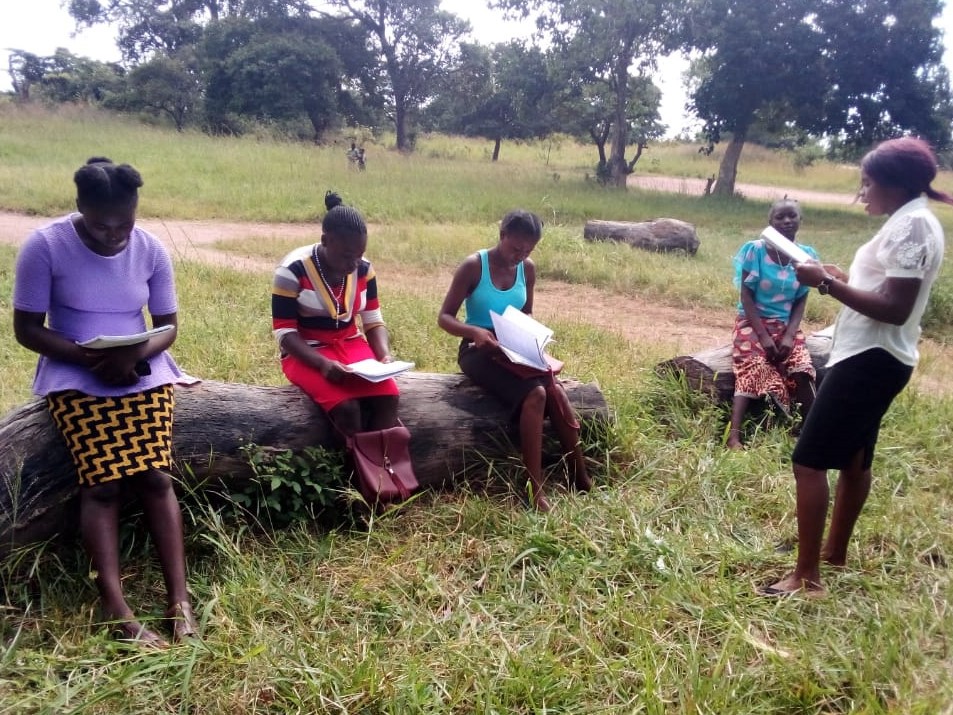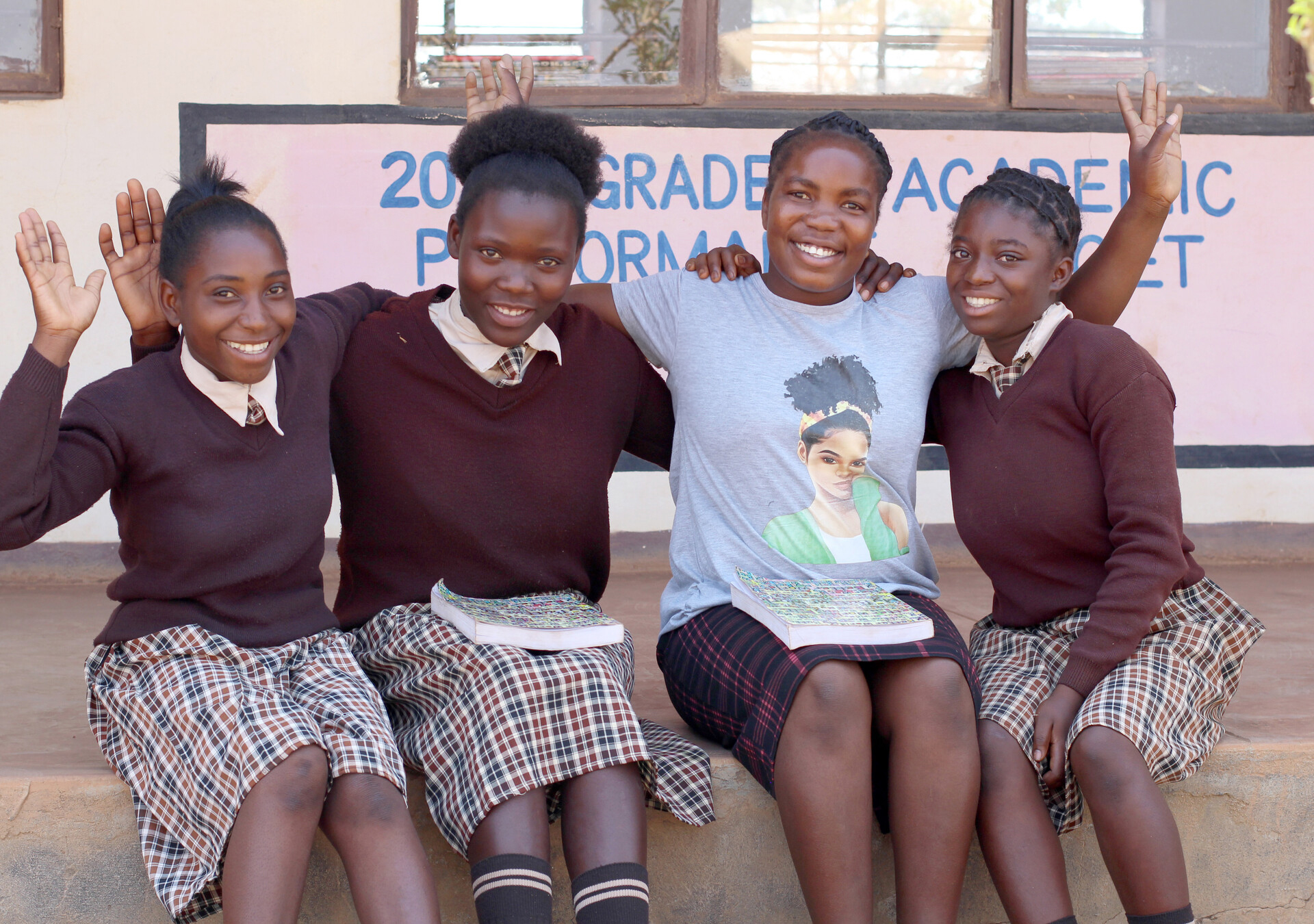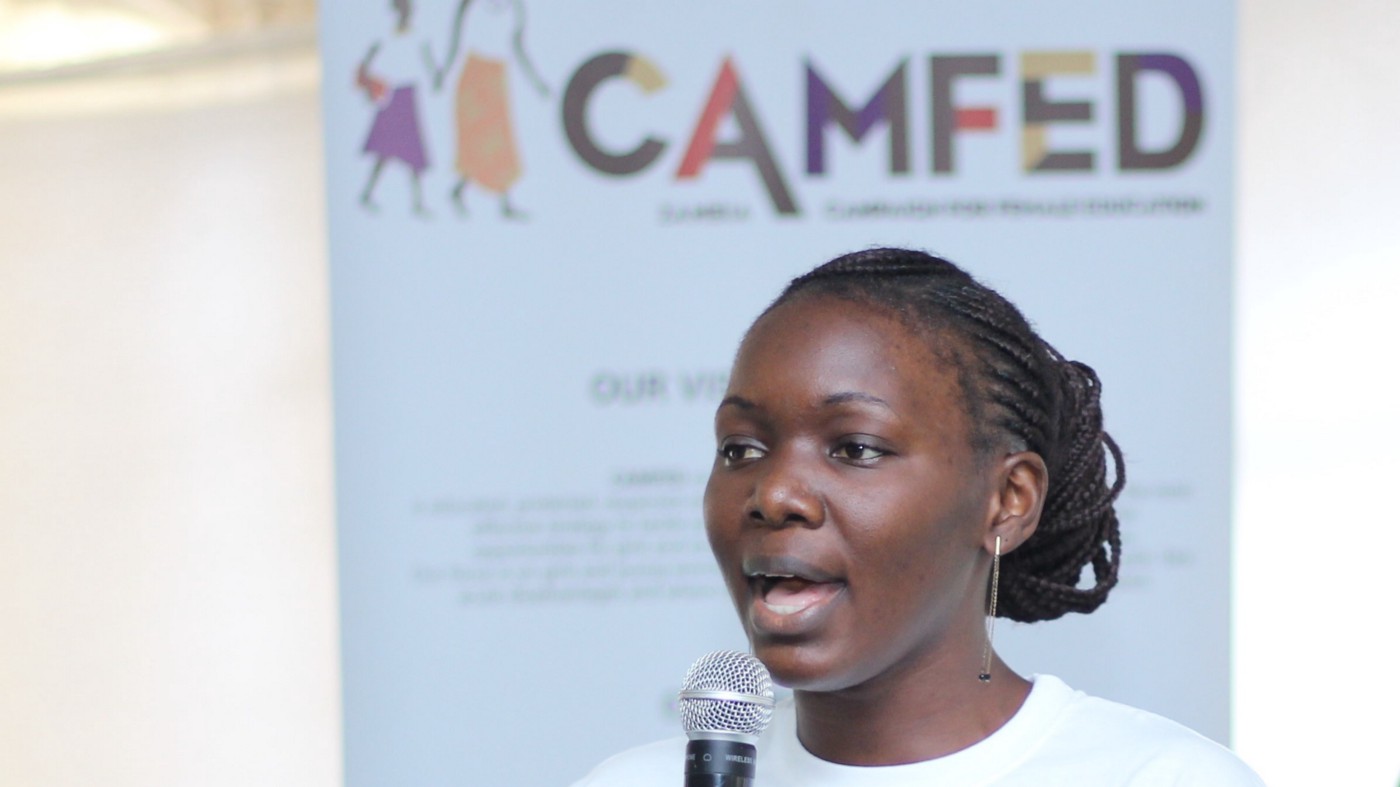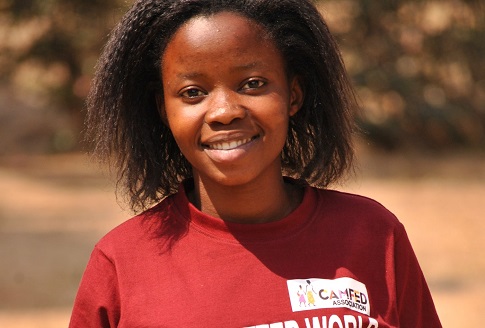I know what it’s like, the fear of not being able to continue your education.
My three siblings and I lost my father, the breadwinner, at a young age. I could have dropped out of school, my only choice early marriage. Now, with coronavirus causing schools to close, this may be the fate of millions more girls. But we are not standing by helplessly. We are taking action.
The support I received to go to school changed my life forever. Now I am a university graduate with my own bakery business. My income has allowed me to support my siblings and three other students through school. I have been working with other young women in the CAMFED Association (community leaders educated with CAMFED support) to mentor children in our local schools and help them build their confidence with life skills. And we help girls succeed after school with financial and business skills training, and access to grants and loans. Most of us run small businesses, so we pool our knowledge and resources.
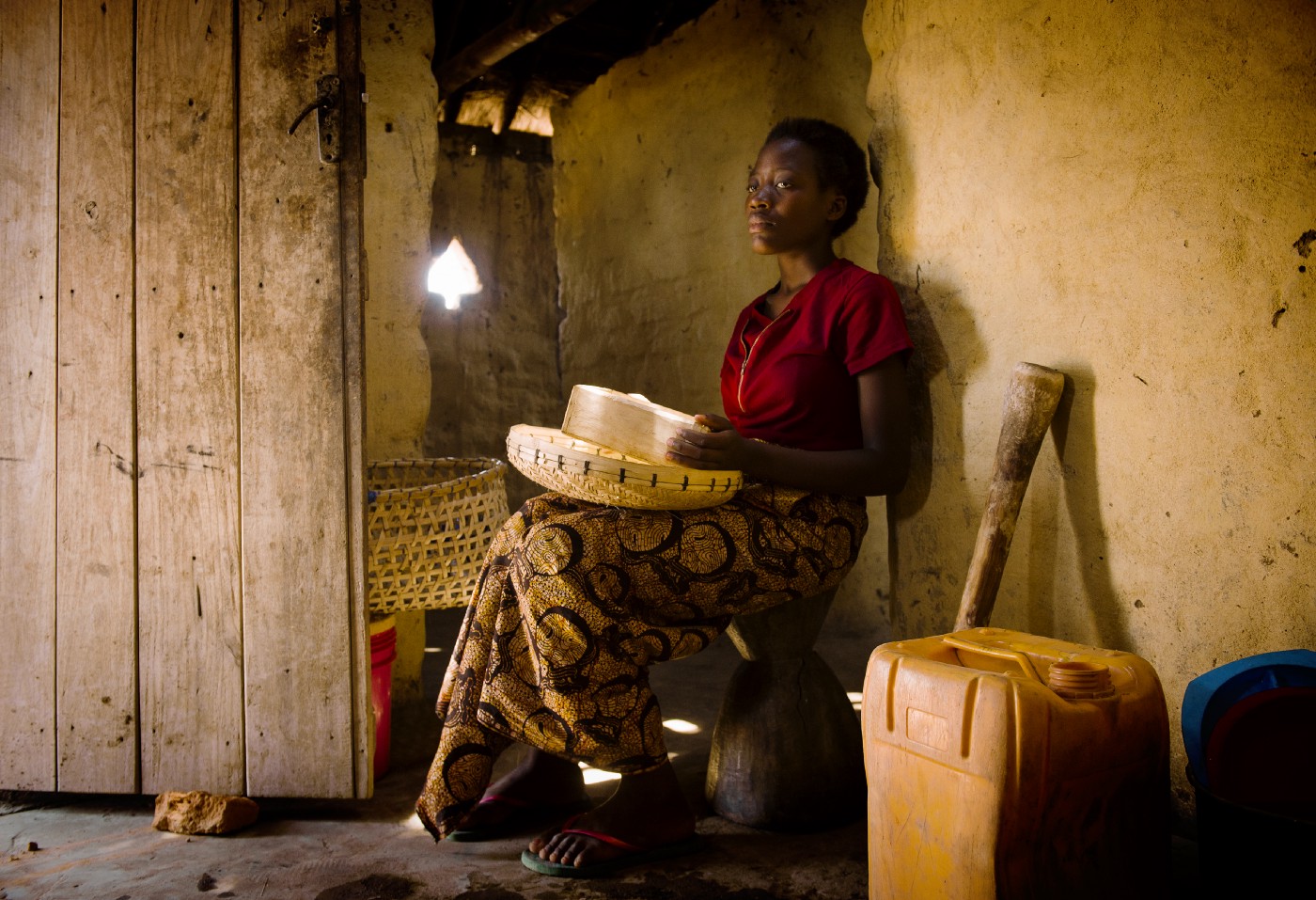
Girls in my community are at even greater risk of child marriage as food insecurity and financial insecurity increases during COVID-19. Photo: Eliza Powell/CAMFED
We know that the girls we support — many orphaned, burdened with household chores, living in families struggling for food — become even more vulnerable to neglect, abuse and child marriage when they cannot access the safety of school, and the support structures it brings. So there is no time to waste to reach out to families, support girls to keep learning so they can return when schools reopen, and to share important health information too.
We called the parents to inform them that once a week, we will continue to provide life skills and well-being lessons to girls.
After schools in my District closed on March 20th, we connected with Teacher Mentors (specially trained teachers that look after the most disadvantaged girls) at CAMFED partner schools to help us get in touch with the parents of girls we have been supporting as ‘Learner Guides.’ We informed them that once a week, we will continue to lead the My Better World life skills curriculum as we did before school closed.
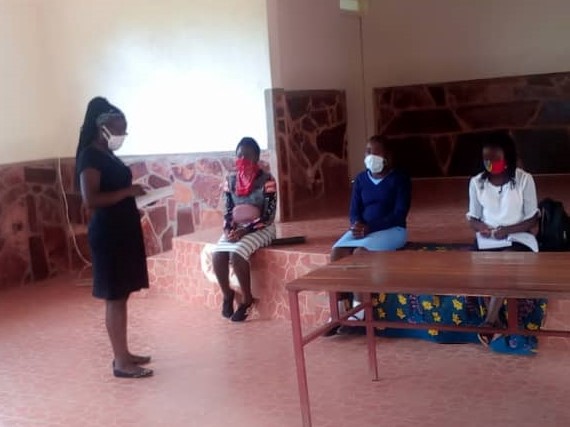
A life and well-being skills session delivered by a fellow Learner Guide in Kasama District at the end of April.
We ask that students come to the school wearing face masks. When the girls get there, we have a washing station (we call it a D-wash) set up: a bucket, a dish with clean water, and hand soap. So as well as delivering the My Better World life skills curriculum, we teach children about the coronavirus and the importance of hand washing, so they can take this information back to their parents too. We meet 8 to 10 children at each of the 10 partner schools in Kasama — about 100 of the most vulnerable girls. The schools are very supportive.
For those who live too far from school, we try to find a place in the community, under a tree, to meet. We keep the group small and we practice social distancing.
We heard your daughter on the radio!
And right now I am speaking to radio stations to see if we can get a cheap slot to start a regular radio program for more children and their parents, so they can listen to My Better World lessons at home. The radio stations already know us “Learner Guides” — they know we support children at risk. On the 27th of April I was invited to speak on a program “Natulande” (“Let’s speak”) on Radio Mano Kasama, addressing child protection because of the danger of child neglect as a result of school closures. The next day, I was invited back onto their news program to speak about COVID-19 and how it spreads; how important it is that children don’t roam; and that people are required to wear face masks when going out. Importantly, I spoke about the risk of child marriage. We want children and their families to be alert and aware of the consequences of child marriage. We are looking at their wellbeing, their future, to make sure it is secured. My mum was so proud — members of the community came up to her and said, “We heard your daughter on the radio!”
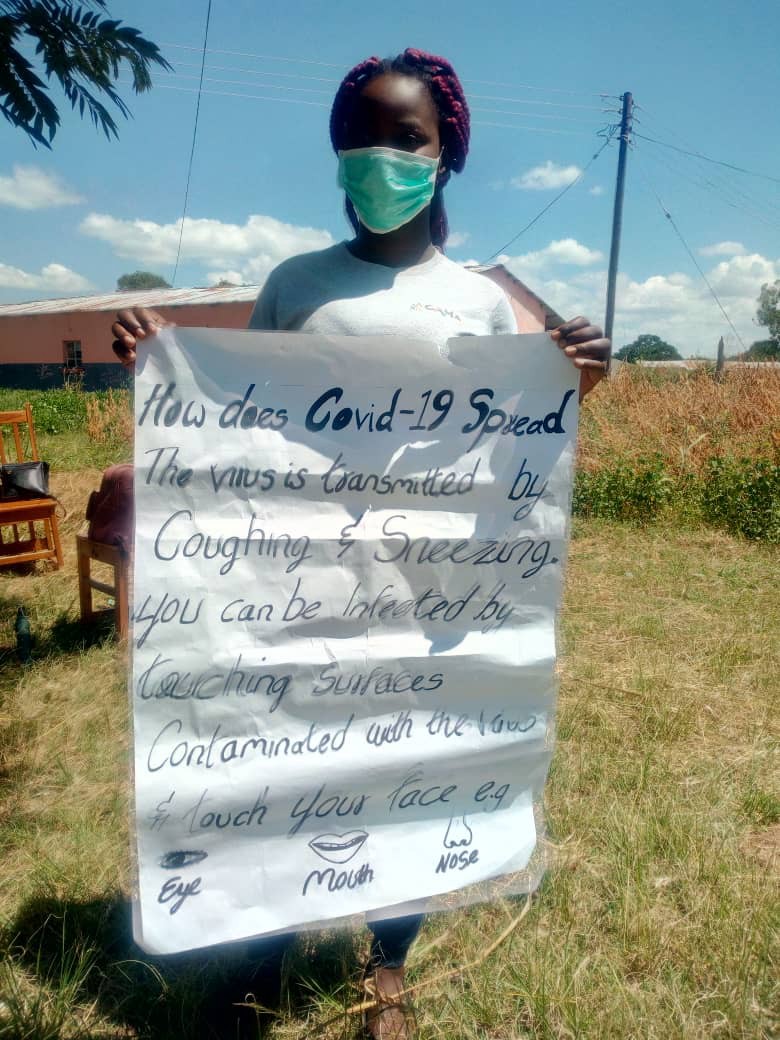
In communities that don’t have access to a radio, this is how my colleagues like Susan (above) and I share important health information.
As Chairperson of the CAMFED Association in my district, I meet the other members, support their activities, and monitor businesses. We share information by mobile phone, which is also how we get first-hand health information and government guidance, which we share with communities.
We don’t just raise awareness about face masks; we are making them. CAMFED Association member Lillian taught three members how to sew face masks by hand, and I was lucky to be one of the three. Lillian cannot speak, so CAMFED Association member Susan, who is a special needs teacher, assisted by translating the sign language for us.
We break down the myths that are spreading — for example, that drunkards can’t get coronavirus because spirits kill it.
We are providing face masks locally, and two CAMFED Association members, Chilombo Nachilima and Memory Bwalya, are selling them at the barriers between districts, for example. Many people from rural areas have no electricity and no radio, so they do not know they have to wear masks. This is an opportunity for young women to earn some income, which many have lost because business is down or they can’t go to work. It is also an opportunity to share important health information, and break down the myths that are spreading.
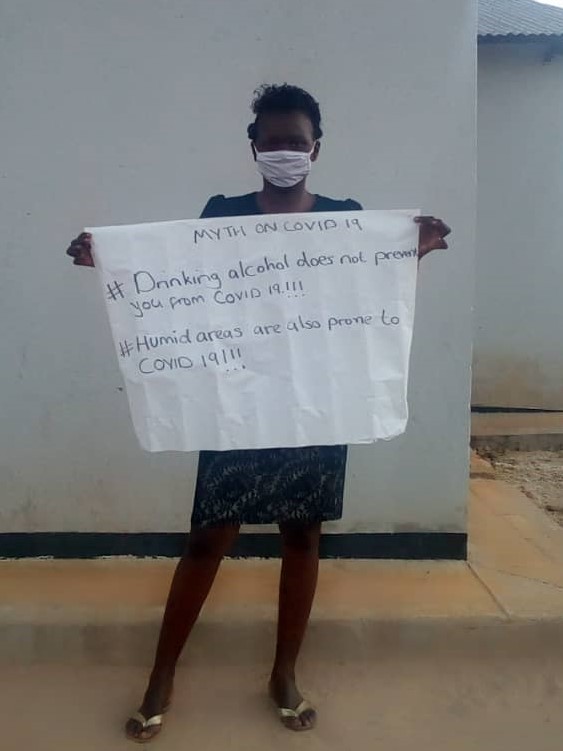
Me helping to break down myths in my community.
Some people say that drunkards can’t get coronavirus, for example, because spirits kill it. The bars are closed, so some men go to bottle shops and then drink in the graveyards. We have made posters to take the truth to communities.
The only thing we use spirits for is to make hand sanitizer.
The only thing we use spirits for is to make hand sanitizer. I run three businesses to make ends meet: I run the bakery; I also sell methylated spirits and glycerin to make hand sanitizers; and I provide commission-based mobile phone transaction services. We do not allow anyone without a face mask to enter our stores, and all shops are required to have hand-washing facilities for customers to use before they enter.
My own business has gone down a bit, but so far I feel lucky: cakes are still a big thing — you cannot have a birthday without a cake! I am grateful, in a way, that the crisis has forced me to go out of my comfort zone. Getting supplies is more of a challenge, because we have stopped importing; I am now making sprinkles by hand. I used to order white butter from big cities like Lusaka or Kitwe and then they would be sent to me by bus. With movement restricted, I’m now looking at other options. I’m buying things in bulk and learning how to make home-made fondant, for example, which lasts longer.
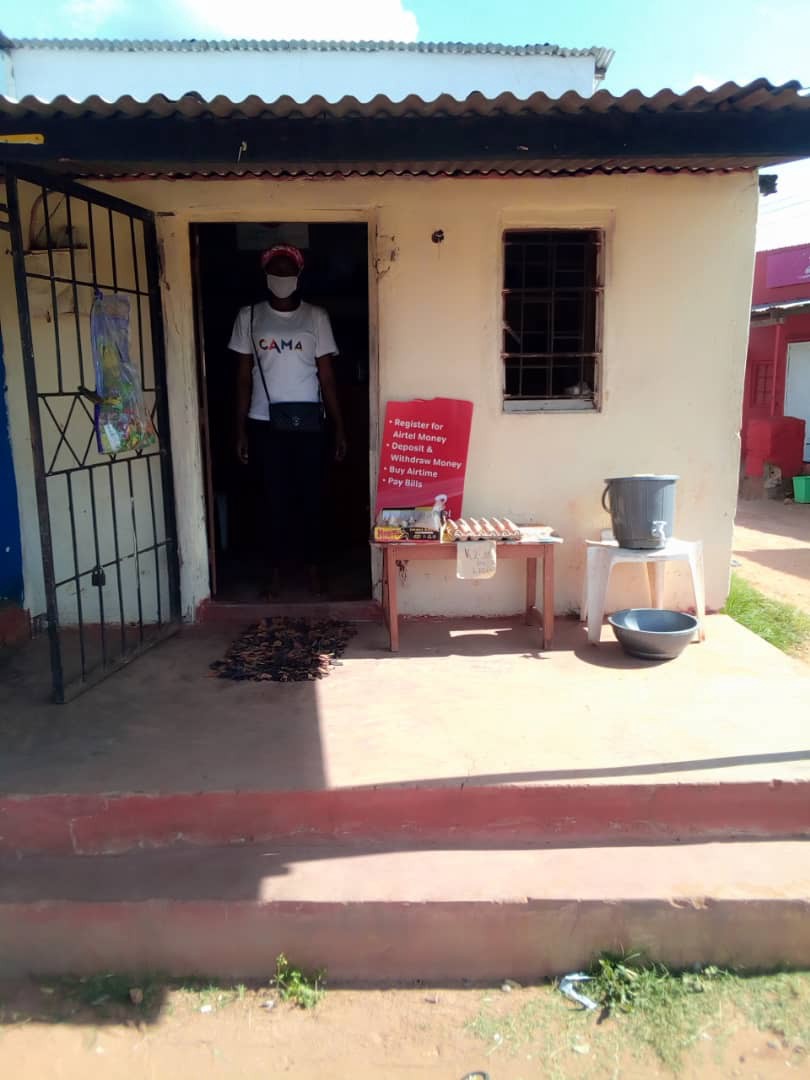
Me in front of my shop. Every customer has to wear a mask and wash their hands before entering.
For me, like for all the young women in the CAMFED Association, my business means so much: it gives me choice, it makes me proud, and it’s a livelihood for me and for my two employees (one female, one male). My income helps me support my mother, my sister, and two other dependents with essentials like school fees, food and sanitary products. I also reach out to other girls in my community.
Because now is the time when we worry most about the ones who are out of school, and we’ll stop at nothing to try and reach them, so that they don’t slip into child marriage or drop out to go find work, out of financial insecurity and hunger.
All of us will suffer if we lose the potential of millions; I can’t wait to get back on the radio to spread the word.
Tisiyenji Ngoma was supported by CAMFED (the Campaign for Female Education) to go to school in rural Zambia. After graduation, she joined the CAMFED Association, a pan-African network of women leaders, who support each other and the next generation of vulnerable girls. In December 2019, Tisi was elected as the CAMFED Association Chairperson for Kasama District. Read her story here. If you believe in the work Tisi and her fellow CAMFED Association members are doing, why not ignite change today?
